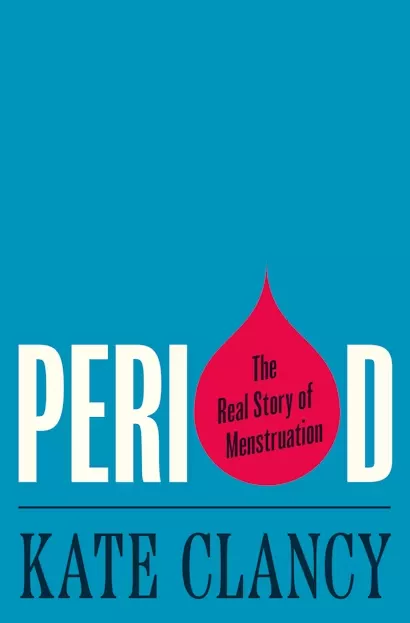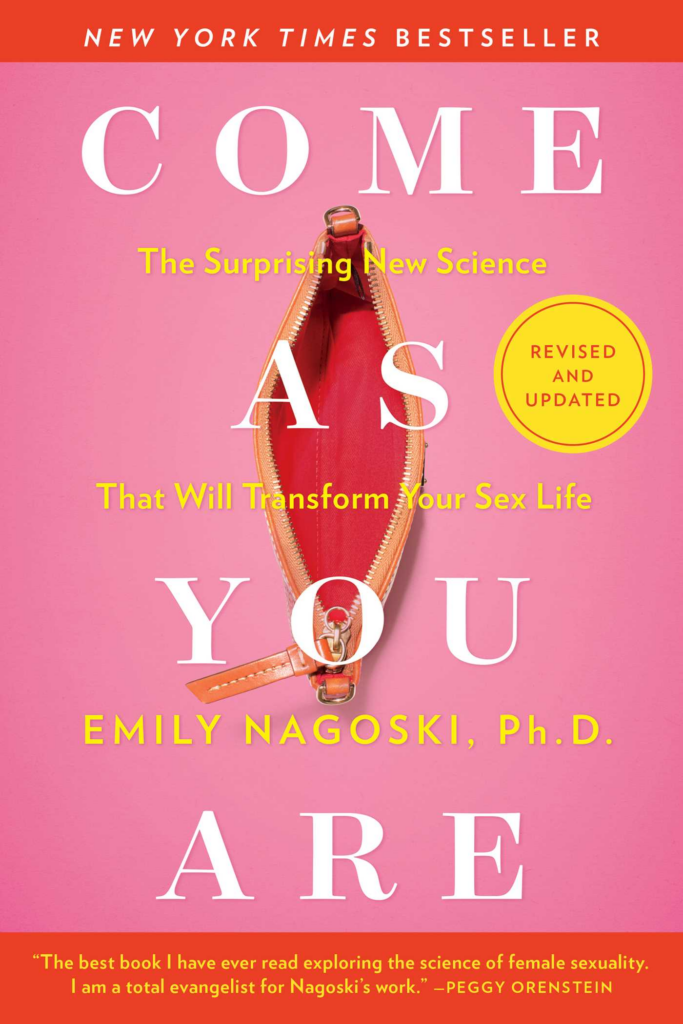Women’s Bodies and Feminist Science Books

Lately, I’m fascinated by the subject of women’s bodies, including personal autonomy and (lack of) access to information, resources, and (quality) healthcare. Though it’s a topic I’ve thought about often, I recently started picking up feminist science books to learn more.
By feminist science books in this context, I am referring to books that use a feminist lens and are backed by science to explore different aspects of women’s health.
Here’s what I’ve learned, and some interesting books to check out.
The Healthcare Landscape for Women
It is not new or groundbreaking information that specific systemic structures prevent women from accessing adequate healthcare. Decades have proven that women are misbelieved, misdiagnosed and underserved when they attempt to address any aspect of their health, particularly at the gynecologist. This is especially true for women of color.
Women and racial and ethnic minorities are 20% to 30% more likely than white men to experience a misdiagnosis. Black women in particular are often undertreated, because somewhere along the line someone decided that they have a ‘higher pain threshold.’ 71% of Black women aged 18-49 reported having at least one of seven kinds of negative experiences with routine health care in the past. These negative experiences included the pain they experienced not taken seriously, and their women’s health concerns not taken seriously.
These problems are not new and date back to the early days of gynecology as we know it.
A Brief History of Gynecology
For centuries, it was women who developed knowledge on women’s anatomy, and who practiced women’s health. However, over time, men took over and shunned women, particularly midwives, from births and eventually out of gynecology as it became established in the 1840’s.
A certain Dr. Sims has been referred to as “the father of gynecology” (an ironic term, at best). His sexist and racist practices included testing on enslaved African women, without the use of anesthesia. Why? Because it was assumed that Black women (really Black people in general) couldn’t feel pain the same way their white counterparts did. A myth that persists to today. Countless Black women have unwillingly, and many times unknowingly, contributed to medicine over time ( a topic that deserves its own post, but you can look up Henrietta Lacks if you’d like to learn more).
Dr. Sims was only one of many who worked during a surge of racist science in the late 19th century. Eugenics played a huge role in medicine during this time, with ‘white and able-bodied’ as the standard of ‘good health’. Any body that deviated from that was thus seen as abnormal, other, and unhealthy. (Not much has changed over time, right?) It is because of this standard that BMI was created, as well as the 28-day menstrual cycle as we know it.
Today, scientists and researchers like Kate Clancy (whose book is linked below) are working to expand science to be more inclusive and feminist. Undergraduate and graduate programs are developing courses dedicated to feminist science practices. And there are so many books on the topic.
Taking Control of Our Bodies
In a world where the patriarchy in its many forms tries to make decisions about our bodies, understanding ourselves is crucial. Learning more about our bodies, how they work, and what they need is the first step in reclaiming control. It is also paramount that we learn more about these issues from multiple perspectives, and that we stay informed about challenges to bodily autonomy. When armed with the right information, we can make healthier decisions and advocate for ourselves every time we walk into a doctor’s office, the work place, into intimate interactions, at the ballot box, wherever.
Now, I haven’t read all of these books, but they’re on my radar. I hope some of these can give you what they’ve given me: a starting point, common ground, fresh insight, hope.
The Books:
Books on How our Bodies Work
Period: The Real Story of Menstruation by Kate Clancy
CW: Fatphobia, Body shaming, Chronic illness, Infertility
In Period: The Real Story of Menstruation, Clancy points to the root of our lack of information about menstruation, which is in short, the “legacies of colonialism, racism, and sexism that pervade science.” Everything we think we know about periods is incorrect. This false and misleading information passed down through generations of women and girls is based on science steeped in eugenics. The author spends the book debunking this information, and provides a thorough, fact-based explanation of the wonders of menstruation.
One of the most fascinating parts of the book is where the author discusses her lab’s efforts to harness the power of the uterus to solve problems in other areas of science. She also discusses the ongoing study of the effects of the COVID-19 vaccines on periods back in 2021.
Come As You Are by Emily Nagoski, Phd

CW: Sexual content, Misogyny, Sexual assault, Rape, Sexual violence
Come As You Are (reviewed by Yasi, and interviewed on the podcast by Renee) is a deep-dive into the science of women’s sexuality. The biggest takeaway from this book is the core focus on how our bodies are completely normal, whole, and healthy just as they are in this moment. Nagoski thoroughly breaks down the nitty-gritty science into everyday conversational language that makes this information easy to understand and share with others. Also, this is one to pick up because understanding our sexuality means autonomy over our bodies.
Vagina Obscura: An Anatomical Voyage by Rachel E. Gross

CW: Medical content, Transphobia, Medical trauma, Infertility, Chronic illness, Miscarriage
The author described writing this book on the science of vaginas as a “Ms. Frizzle-esque journey.” (The Magic School Bus kid in me wants to read this based on that description alone.) She quickly learned that there is a huge knowledge gap when it comes to the female body because a lot of research is built on the study of the male body. Through Vagina Obscura, we explore the female reproductive system as a whole through the new perspectives of feminist scientists who are working to find out new things previously left unturned.
Books about Rethinking Healthcare
The Pain Gap: How Sexism and Racism in Healthcare Kill Women by Anushay Hossain

CW: Medical trauma, Pregnancy, Child death, Racism, Death, Sexism, Homophobia, Transphobia
The Pain Gap draws on the lived experiences of the author and other women to highlight the problems in the healthcare available to women. After growing up with nearly non-existent women’s healthcare in Bangladesh in the 80’s, Hossain moved to the United States where she expected to find top-notch healthcare. She found the complete opposite, including a near-death experience during labor. She also details her journey as an advocate for global health reform and for a healthcare revolution that we desperately need.
Sex Matters: How Male-Centric Medicine Endangers Women’s Health and What We Can Do About It by Alyson McGregor, MD

In Sex Matters, Dr. McGregor sheds light on the how medicine and science has relied on the male body for research, which in turn has produced models that are then applied to all bodies– including those of women. She sets out to point out the biological and emotional differences between men and women that are key to offering adequate care for women. She provides many examples of disparity in healthcare, but also offers solutions that could lead to inclusivity and better care for all.
Doing Harm: The Truth About How Bad Medicine and Lazy Science Leave Women Dismissed, Misdiagnosed, and Sick by Maya Dusenbery

CW: Medical content, Sexism, Medical trauma, Misogyny, Chronic illness, Fatphobia, Mental illness, Racism, Body shaming, Cancer, Emotional abuse, Infertility, Gaslighting.
Drawing on scientific and sociological research, Dusenbery wrote Doing Harm to point out the problems in women’s healthcare today, specifically the negative effects of gender bias. She interviews people who work in healthcare, as well as patients who share their experiences. Like other great books on this topic, she points out the problems and also provides clear steps we can take toward solutions.
Books about Reproductive Justice
Killing the Black Body: Race, Reproduction, and the Meaning of Liberty by by Dorothy E. Roberts

CW: Racism, Slavery, Medical trauma, Sexism, Medical content, Pregnancy, Classism, Miscarriage, Misogyny, Rape, Abortion, Ableism, Bullying, Confinement, Hate crime, Infertility, Physical abuse, Self harm, Sexual assault, Sexual violence.
Originally published in 1997, Killing the Black Body is a must read for anyone actively learning about reproductive rights. Through a Black feminist lens, Roberts examines American history and legislation to discuss the limits placed on Black women’s bodily autonomy over the years by external white forces. She calls for solutions that demand that we reconceptualize and expand on the definitions of liberty and equality.
Birthing Liberation: How Reproductive Justice Can Set Us Free by Sabia Wade

CW: Pregnancy, Birth, Medical trauma.
In Birthing Liberation, Wade draws from her work as a doula and educator to walk readers through Black women’s healthcare experiences. Chapter by chapter, she includes exercises to help digest the information, and ties in stories from Black history to cement understanding. Wade believes in collective liberation, and writes from the birthing world she knows best to guide us toward lasting systemic change.
Ejaculate Responsibly: A Whole New Way to Think About Abortion by Gabrielle Stanley Blair

CW: Sexism, Abortion, Pregnancy, Sexual assault, Sexual content, Medical content, Sexual violence, Miscarriage, Rape
After sitting through the Kavanaugh hearings back in 2018, Gabrielle Stanley Blair got on Twitter to vent and wrote a viral thread about how men have no interest in ending abortion. Ejaculate Responsibly (published in 2022) is Blair’s attempt to shift the onus from women to men when it comes to unwanted pregnancies and personal choice.
More books to consider:
Ask Me About My Uterus: A Quest to Make Doctors Believe in Women’s Pain
Pain and Prejudice: A Call to Arms for Women and their Bodies
Just Medicine: A Cure for Racial Inequality in American Healthcare
Bleed: Destroying Myths and Misogyny in Endometriosis Care
Everything Below the Waist: Why Healthcare Needs a Feminist Revolution
Some posts we have written about our bodies:
My period post
Natalia’s abortion access story
Steph’s period stories post


 Anal Beads
Anal Beads Anal Vibrators
Anal Vibrators Butt Plugs
Butt Plugs Prostate Massagers
Prostate Massagers
 Alien Dildos
Alien Dildos Realistic Dildos
Realistic Dildos
 Kegel Exercisers & Balls
Kegel Exercisers & Balls Classic Vibrating Eggs
Classic Vibrating Eggs Remote Vibrating Eggs
Remote Vibrating Eggs Vibrating Bullets
Vibrating Bullets
 Bullet Vibrators
Bullet Vibrators Classic Vibrators
Classic Vibrators Clitoral Vibrators
Clitoral Vibrators G-Spot Vibrators
G-Spot Vibrators Massage Wand Vibrators
Massage Wand Vibrators Rabbit Vibrators
Rabbit Vibrators Remote Vibrators
Remote Vibrators
 Pocket Stroker & Pussy Masturbators
Pocket Stroker & Pussy Masturbators Vibrating Masturbators
Vibrating Masturbators
 Cock Rings
Cock Rings Penis Pumps
Penis Pumps
 Wearable Vibrators
Wearable Vibrators Blindfolds, Masks & Gags
Blindfolds, Masks & Gags Bondage Kits
Bondage Kits Bondage Wear & Fetish Clothing
Bondage Wear & Fetish Clothing Restraints & Handcuffs
Restraints & Handcuffs Sex Swings
Sex Swings Ticklers, Paddles & Whips
Ticklers, Paddles & Whips







![[MINI POD]Go home for the holidays (even if you're not home)](https://ps-eden.com/wp-content/uploads/2025/12/MINI-PODGo-home-for-the-holidays-even-if-youre-not.avif)






![[MINI POD] WNBA Memoirs - Feminist Book Club](https://ps-eden.com/wp-content/uploads/2025/09/MINI-POD-WNBA-Memoirs-Feminist-Book-Club.png)

